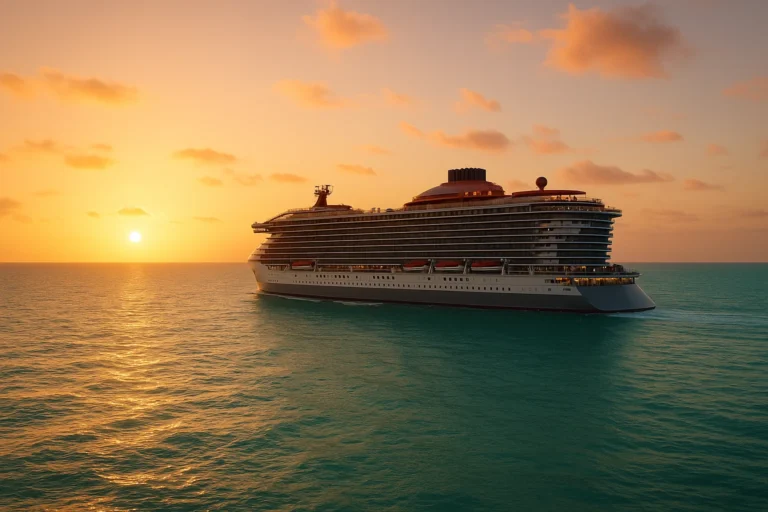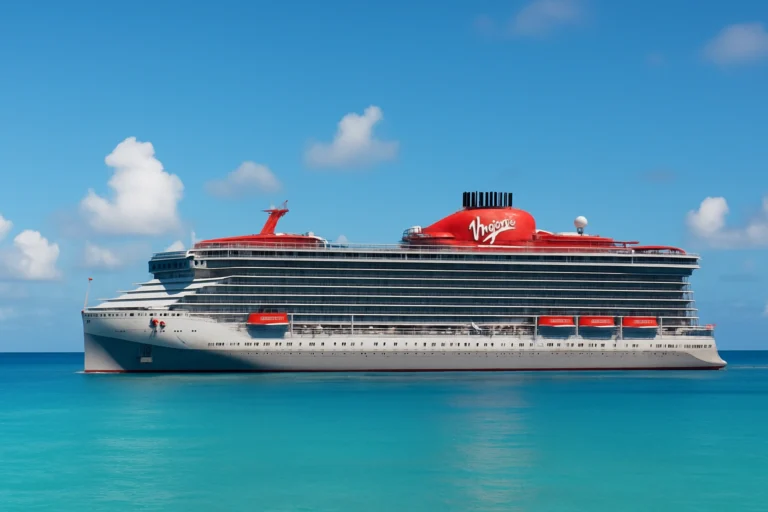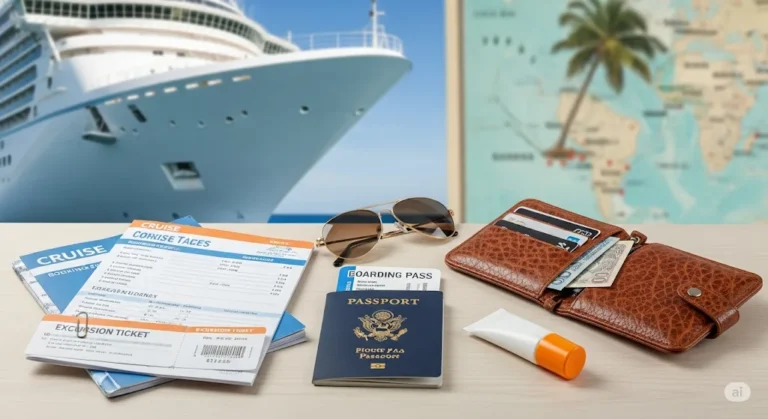Cruise Insurance Explained: Protection, Prices & Is It Worth It? (2025)
Cruise Insurance Explained: Protection, Prices & Is It Worth It? (2025) 🛡️💸
You’ve booked your dream cruise: sun-drenched decks, exotic ports, gourmet dining… but what happens if a sudden illness forces you to cancel? Or your luggage goes missing? Or, worse, you need emergency medical attention far from home? This is where **Cruise Insurance Explained: Protection, Prices & Is It Worth It? (2025)** comes into play. Often overlooked, travel insurance specifically designed for cruises can be the safety net that saves your vacation – and your wallet – from unexpected disruptions. Let’s break down what cruise insurance covers, how much it costs, and help you decide if it’s a worthwhile investment for your next adventure at sea.
What Does Cruise Insurance Protect You From? 📋✨
Cruise insurance isn’t a one-size-fits-all product, but comprehensive policies typically offer several key types of coverage:
1. Trip Cancellation & Interruption ❌✈️
This is often the most significant benefit. It reimburses you for non-refundable expenses if you have to cancel or cut short your cruise due to covered reasons like:
- Sudden illness, injury, or death of you, a travel companion, or a family member.
- Severe weather preventing travel or port closures.
- Terrorist acts.
- Jury duty or military deployment.
- Financial default of the cruise line (check policy specifics).
Some policies offer a “Cancel For Any Reason” (CFAR) upgrade, which, while more expensive, offers much greater flexibility.
2. Medical Emergencies & Evacuation 🏥🚑
Your domestic health insurance may offer limited or no coverage once you leave your home country or even just your state’s borders, especially on a cruise ship. This coverage is vital:
- Medical Expenses: Covers doctor visits, hospital stays, and prescription drugs if you get sick or injured on your trip.
- Emergency Medical Evacuation: This is crucial for cruises. If you need to be transported from the ship to a medical facility on land, or even airlifted to a specialized hospital, these costs can be astronomical (tens to hundreds of thousands of dollars). Insurance covers this.
3. Baggage Loss, Delay & Damage 🧳⏰
Protect your belongings from the unexpected:
- Lost/Stolen Baggage: Reimburses you for the value of your luggage and its contents if permanently lost or stolen.
- Delayed Baggage: Provides funds to purchase essential items (toiletries, clothing) if your luggage is delayed for a specified period (e.g., 6-12 hours).
4. Travel Delay ⏳🏨
If your flight to the port is delayed, causing you to miss embarkation, this coverage can help. It can reimburse you for:
- Additional accommodation and meal expenses incurred during the delay.
- Costs to catch up to your cruise at the next port.
5. Missed Connection 🔗🛳️
Specifically designed for cruise travelers, this covers the costs to join your ship at the next scheduled port if you miss the initial embarkation due to a covered travel delay (e.g., a delayed flight or mechanical issue with ground transportation).
—
📂 Explore More in These Categories
How Much Does Cruise Insurance Cost? 💲📊
The price of cruise insurance can vary widely based on several factors, but generally, it’s a small percentage of your overall trip cost. For **Cruise Insurance Explained: Protection, Prices & Is It Worth It? (2025)**, expect to pay anywhere from **4% to 10% of your total non-refundable trip cost**.
Factors influencing the price include:
- Total Trip Cost: The higher the cost of your cruise, the higher the premium.
- Traveler’s Age: Older travelers typically pay more due to higher associated health risks.
- Length of Cruise: Longer cruises generally mean higher premiums.
- Level of Coverage: Basic plans are cheaper than comprehensive plans or those with add-ons like CFAR.
- Pre-Existing Conditions: Some policies offer waivers for pre-existing medical conditions if purchased early and meet certain criteria.
Example: For a $4,000 cruise, a policy might cost between $160 and $400. Compare this to potential losses of thousands for cancellation or tens of thousands for medical evacuation!
—
Is Cruise Insurance Worth It? (2025 Edition) 🤔✅
This is the million-dollar question, and the answer often depends on your personal circumstances, risk tolerance, and the cost of your trip.
When It’s (Almost) Always Worth It:
- Expensive Cruises: If your cruise represents a significant financial investment, the peace of mind alone is worth the premium.
- Cruises to Remote Destinations: Imagine a medical emergency in the Arctic or Galapagos. Medical facilities might be limited, and evacuation costs immense.
- Travelers with Pre-Existing Conditions or Older Travelers: Medical emergencies are more likely, and standard health insurance often doesn’t cover international travel.
- Peak Season Travel: During hurricane season in the Caribbean or unpredictable weather elsewhere, trip interruption/cancellation due to weather is a real risk.
- Connecting Flights: If you have connecting flights to reach your embarkation port, travel delay and missed connection coverage are invaluable.
When You Might Consider Skipping It (with caution):
- Very Low-Cost Cruises: For a short, inexpensive cruise, the premium might not justify the potential payout if your other insurance (homeowner’s, credit card) offers some limited coverage.
- Flexible Bookings: If your cruise fare is entirely refundable until very close to departure, your financial risk is lower.
- Robust Existing Coverage: Some premium credit cards offer limited travel protection. Review your existing policies thoroughly before deciding.
For **Cruise Insurance Explained: Protection, Prices & Is It Worth It? (2025)**, the trend points towards increased unpredictability in travel, making insurance a more prudent choice for most. Pandemics, extreme weather events, and geopolitical instability continue to highlight the importance of being prepared.
—
Where to Buy Cruise Insurance? 🛒🤝
You have a few options when purchasing cruise insurance:
- Cruise Line’s Own Insurance: Convenient, but often less comprehensive and more expensive than third-party options. Their coverage can also have limitations if the cruise line itself goes out of business.
- Third-Party Travel Insurance Providers: These specialize in travel insurance and often offer more robust coverage, better prices, and greater flexibility. They also cover scenarios like the cruise line’s financial default. Always compare quotes from several providers.
- Credit Card Benefits: Some premium credit cards offer complimentary travel insurance benefits. Read the fine print carefully, as coverage limits are often low, and exclusions can be extensive.
Always read the **policy’s Certificate of Insurance** thoroughly before purchasing to understand what is and isn’t covered, including exclusions for pre-existing conditions, adventure activities, or specific events.
—
❓ Frequently Asked Questions (FAQ) about Cruise Insurance ❓
Q: Does cruise insurance cover pre-existing medical conditions?
A: Some policies offer a pre-existing medical condition waiver if purchased within a specific timeframe (e.g., 10-21 days) of your initial trip deposit and if you insure your full non-refundable trip cost. Always check the policy details carefully.
Q: What is a “Cancel For Any Reason” (CFAR) policy?
A: CFAR is an optional upgrade that allows you to cancel your trip for any reason not covered by a standard policy and get a percentage (usually 50-75%) of your non-refundable trip costs back. It’s more expensive and often has strict purchase deadlines.
Q: Is emergency medical evacuation really that expensive?
A: Yes, extremely. Air ambulances or medical repatriations can cost anywhere from $25,000 to over $250,000, depending on the location and required medical care. This is often the most critical reason to have robust travel medical insurance for a cruise.
Q: Does my credit card offer enough travel insurance?
A: Credit card travel benefits vary greatly. While some offer basic coverage for things like rental car insurance or baggage delay, they often have low limits for medical emergencies or trip cancellation/interruption and many exclusions. Always read your card’s guide to benefits thoroughly to understand its limitations.
Q: When should I buy cruise insurance?
A: It’s generally recommended to buy cruise insurance as soon as you make your initial trip deposit, especially if you want to qualify for pre-existing medical condition waivers or “Cancel For Any Reason” benefits, which often have early purchase windows.
—
Conclusion: Peace of Mind on the High Seas 🌊😌
While no one wants to think about things going wrong on vacation, understanding **Cruise Insurance Explained: Protection, Prices & Is It Worth It? (2025)** is a vital step in responsible trip planning. For most travelers, especially those embarking on significant or complex voyages, the cost of comprehensive cruise insurance is a small price to pay for the extensive financial protection and peace of mind it offers. Don’t let an unexpected hiccup turn your dream cruise into a nightmare. Sail confidently, knowing you’re covered!









